Lovage (Levisticum officinale), often referred to as “sea parsley” due to its resemblance to parsley, is an aromatic herb native to southern Europe and southwestern Asia. While not as commonly utilized as some other herbs, lovage offers a plethora of health benefits backed by scientific research. From its rich nutrient profile to its potential medicinal properties, incorporating lovage into one’s diet can contribute significantly to overall well-being.
 Digestive Health
Digestive Health
Historically, lovage has been used to aid digestion and alleviate gastrointestinal discomfort. Scientific studies suggest that compounds present in lovage, such as volatile oils and flavonoids, may possess anti-inflammatory and carminative properties, which could help soothe digestive issues like bloating, gas, and indigestion.
A study published in the “Journal of Ethnopharmacology” in 2002 investigated the gastrointestinal effects of lovage extract in rats and found that it exhibited significant antispasmodic activity, indicating its potential in relieving gastrointestinal spasms and cramps.
One of the key components of lovage responsible for its digestive health benefits is its rich concentration of essential oils, including limonene, eugenol, and alpha-pinene. These volatile compounds possess anti-inflammatory properties that can help calm inflammation within the gastrointestinal tract, reducing discomfort associated with conditions like gastritis and irritable bowel syndrome (IBS).
Moreover, lovage contains flavonoids, such as quercetin and apigenin, which contribute to its therapeutic effects on digestion. Flavonoids are known for their antioxidant and anti-spasmodic properties, which can help relax the muscles of the digestive system, easing cramps and spasms. Additionally, they may promote the production of digestive enzymes, facilitating the breakdown of food and enhancing nutrient absorption.
 Anti-inflammatory and Antioxidant Properties
Anti-inflammatory and Antioxidant Properties
Lovage contains various bioactive compounds known for their anti-inflammatory and antioxidant properties. These compounds, including flavonoids, phenolic acids, and volatile oils, help combat oxidative stress and inflammation in the body, which are implicated in the development of chronic diseases such as cardiovascular disease, cancer, and neurodegenerative disorders.
Research published in the “Journal of Agricultural and Food Chemistry” in 2004 identified several phenolic compounds in lovage with potent antioxidant activity. These compounds were found to scavenge free radicals effectively, thereby reducing oxidative damage to cells and tissues.
One notable attribute is its rich content of quercetin, a flavonoid renowned for its ability to suppress inflammation by inhibiting inflammatory enzymes and signaling pathways. Quercetin also acts as a powerful antioxidant, neutralizing free radicals and preventing oxidative damage to cellular components.
In addition to quercetin, lovage contains significant amounts of apigenin, another flavonoid with pronounced anti-inflammatory effects. Apigenin has been shown to modulate immune responses, reduce the production of pro-inflammatory cytokines, and inhibit the activity of enzymes involved in the inflammatory process. By targeting multiple pathways implicated in inflammation, apigenin contributes to the overall anti-inflammatory properties of lovage.
Moreover, the volatile oils present in lovage, such as limonene and eugenol, contribute to its antioxidant and anti-inflammatory effects. These oils possess scavenging properties that enable them to neutralize reactive oxygen species (ROS) and mitigate oxidative stress-induced damage. Additionally, limonene and eugenol exhibit anti-inflammatory actions by inhibiting the synthesis of pro-inflammatory mediators and promoting the expression of anti-inflammatory molecules.
 Potential Antimicrobial Activity
Potential Antimicrobial Activity
Preliminary studies suggest that lovage may possess antimicrobial properties, making it a potential natural remedy for fighting bacterial and fungal infections. A study published in “Pharmaceutical Biology” in 2017 evaluated the antimicrobial activity of lovage essential oil and found it to exhibit significant inhibitory effects against various pathogenic bacteria and fungi, including Escherichia coli and Candida albicans.
Furthermore, lovage’s antimicrobial activity is attributed to its rich phytochemical composition, which includes compounds such as phthalides, coumarins, flavonoids, and volatile oils. These constituents have been shown to possess antimicrobial properties in various studies. Phthalides, for instance, have been reported to exhibit antibacterial effects against a range of pathogenic bacteria, while coumarins have demonstrated antifungal activity against Candida species. Additionally, flavonoids are known for their ability to disrupt microbial cell membranes, leading to inhibition of growth and proliferation.
The unique combination of these bioactive compounds in lovage essential oil contributes to its broad-spectrum antimicrobial efficacy. Unlike conventional antimicrobial agents, lovage offers a natural alternative with potentially fewer side effects and lower risk of microbial resistance development. This makes it particularly appealing for individuals seeking alternative remedies for managing bacterial and fungal infections.
 Bone Health
Bone Health
Lovage is a good source of vitamin K, which plays a crucial role in bone metabolism and calcium regulation. Adequate intake of vitamin K is associated with a reduced risk of bone fractures and improved bone density. Incorporating lovage into the diet can contribute to maintaining strong and healthy bones, especially important for individuals at risk of osteoporosis and bone-related conditions.
In addition to its vitamin K content, lovage offers unique qualities that further promote bone health. This herb contains compounds like quercetin and kaempferol, which possess anti-inflammatory properties. Chronic inflammation can lead to bone loss and weaken the overall bone structure. By reducing inflammation, lovage helps in preserving bone integrity and minimizing the risk of fractures.
Moreover, lovage is rich in minerals such as calcium, magnesium, and manganese, all essential for maintaining strong bones. Calcium is a primary building block of bone tissue, while magnesium aids in its absorption and utilization. Manganese contributes to the formation of bone cartilage and collagen, crucial components for bone strength and flexibility. By providing these vital minerals, lovage supports the overall health and resilience of the skeletal system.
 Diuretic Properties
Diuretic Properties
Traditionally, lovage has been used as a diuretic to promote the excretion of excess water and salts from the body, helping to alleviate conditions such as bloating, water retention, and urinary tract infections. Studies have suggested that certain compounds found in lovage, such as coumarins and flavonoids, may contribute to its diuretic effects by increasing urine production and enhancing kidney function.
Alongside its diuretic properties, it contains compounds with potential antimicrobial and anti-inflammatory effects, which could aid in combating urinary tract infections (UTIs) and reducing associated discomfort. This multifaceted action underscores the value of lovage as not only a diuretic but also a supportive herb for overall urinary tract health.
Furthermore, lovage’s diuretic properties may extend beyond simply promoting fluid excretion. Some research suggests that it could have mild detoxifying effects on the kidneys, potentially aiding in the elimination of toxins and waste products from the body. By supporting kidney function in this manner, lovage may contribute to overall detoxification and cleansing processes, enhancing overall health and well-being.
 Respiratory Health
Respiratory Health
The essential oils present in lovage possess expectorant properties, which can help loosen mucus and facilitate its expulsion from the respiratory tract. This makes lovage a potential natural remedy for respiratory conditions such as coughs, bronchitis, and congestion. Additionally, the anti-inflammatory properties of lovage may help reduce inflammation in the airways, providing relief from respiratory symptoms.
Moreover, lovage exhibits antimicrobial properties, which may contribute to its effectiveness in combating respiratory infections caused by bacteria or viruses. By inhibiting the growth of pathogens in the respiratory tract, lovage could aid in speeding up recovery from infections such as the common cold or flu. Its antimicrobial action also supports overall respiratory health by preventing the proliferation of harmful microorganisms that could lead to more severe respiratory illnesses.
In addition to its therapeutic properties, lovage is often consumed as a tea or incorporated into herbal remedies due to its pleasant aroma and flavor. The act of inhaling the steam from lovage tea can provide immediate relief for congested airways, while also soothing irritated throat tissues. Furthermore, the act of drinking lovage tea can help hydrate the respiratory tract, which is essential for maintaining optimal mucous membrane function and facilitating the clearance of mucus.
Stress Reduction
The aroma of lovage has been traditionally used in aromatherapy for its calming and stress-relieving effects. Inhaling the scent of lovage essential oil or incorporating lovage into herbal teas may help promote relaxation, reduce anxiety, and alleviate stress-related symptoms. While more research is needed in this area, anecdotal evidence suggests that lovage aroma therapy may offer psychological benefits.
Additionally, lovage contains compounds such as phthalides and coumarins, which are believed to contribute to its stress-reducing properties. Phthalides have been studied for their potential to lower blood pressure and calm the nervous system, while coumarins have been linked to anti-anxiety effects. These compounds work synergistically with other components present in lovage to create a holistic approach to stress reduction.
Moreover, lovage is rich in antioxidants, including flavonoids and phenolic acids, which help combat oxidative stress in the body. Oxidative stress is associated with an increased risk of anxiety and depression, making antioxidant-rich foods like lovage beneficial for mental well-being. By neutralizing free radicals and reducing inflammation, lovage may support overall stress resilience and promote a sense of calmness.
Skin Health
Some studies suggest that the antioxidant compounds found in lovage may help protect the skin from oxidative damage caused by environmental stressors such as UV radiation and pollution. Additionally, the anti-inflammatory properties of lovage may help reduce inflammation associated with skin conditions like acne, eczema, and psoriasis. Incorporating lovage into the diet or using it topically in skincare preparations may promote overall skin health and vitality.
Furthermore, lovage contains compounds such as quercetin and kaempferol, which have been shown to possess anti-aging properties by promoting collagen production and reducing the appearance of wrinkles and fine lines. Its natural moisturizing effects can also help to hydrate the skin, keeping it supple and youthful.
Moreover, lovage exhibits antimicrobial properties that can be beneficial for maintaining skin health. By inhibiting the growth of harmful bacteria on the skin’s surface, lovage may help prevent infections and breakouts, contributing to a clearer complexion.
Additionally, the high content of vitamins A and C in lovage contributes to its ability to support skin health. Vitamin A is essential for skin cell regeneration and repair, while vitamin C is known for its role in brightening the complexion and protecting the skin from free radical damage.
Cardiovascular Support
The compounds present in lovage, such as flavonoids and polyphenols, exhibit cardiovascular protective effects. These bioactive compounds help to improve blood circulation, lower blood pressure, and reduce levels of LDL (bad) cholesterol, thereby lowering the risk of cardiovascular diseases such as heart attacks, strokes, and atherosclerosis. Regular consumption of lovage as part of a heart-healthy diet may contribute to overall cardiovascular well-being.
Additionally, lovage contains significant amounts of potassium, a mineral crucial for maintaining heart health. Potassium helps regulate blood pressure by counteracting the effects of sodium and reducing the strain on the cardiovascular system. By incorporating lovage into one’s diet, individuals may naturally enhance their potassium intake, further promoting heart health.
Moreover, lovage possesses diuretic properties, aiding in the elimination of excess fluids and sodium from the body. This action can help alleviate fluid retention, a common concern for individuals with cardiovascular issues, and contribute to maintaining a healthy fluid balance within the body. By reducing fluid retention, lovage may indirectly support cardiovascular health by easing the burden on the heart and blood vessels.
Anti-Cancer Potential
Some preliminary studies suggest that certain compounds present in lovage may possess anti-cancer properties, although more research is needed to fully understand their mechanisms of action and potential therapeutic applications. For example, the flavonoids and polyphenols in lovage have been shown to exhibit antioxidant and anti-inflammatory effects, which may help reduce the risk of cancer development by neutralizing free radicals and inhibiting inflammatory processes associated with tumor growth.
Furthermore, lovage contains unique bioactive compounds such as quercetin, apigenin, and luteolin, which have been studied for their potential anti-cancer effects. Quercetin, for instance, has demonstrated promising anti-cancer activity by inducing apoptosis (programmed cell death) in cancer cells and inhibiting their proliferation. Apigenin and luteolin, on the other hand, have shown efficacy in suppressing the growth and metastasis of various cancer types by interfering with signaling pathways involved in tumor progression.
Moreover, lovage possesses high concentrations of essential oils, particularly phthalides and terpenes, which have been linked to anti-cancer properties. These compounds have exhibited cytotoxic effects on cancer cells, disrupting their cellular processes and inducing cell death. Additionally, lovage’s rich content of vitamins and minerals, including vitamin C, vitamin E, and selenium, contributes to its potential anti-cancer effects by bolstering the body’s immune function and reducing oxidative stress, which are crucial factors in cancer prevention and treatment.
Liver Health
Lovage has traditionally been used to support liver function and promote detoxification. Its diuretic properties may aid in the elimination of toxins from the body, while its antioxidant compounds help protect liver cells from damage caused by oxidative stress and toxins. Additionally, lovage may stimulate bile production, which is essential for the digestion and absorption of fats and fat-soluble vitamins. Including lovage in the diet may help maintain liver health and optimize its detoxification processes.
Furthermore, lovage contains certain bioactive compounds such as apigenin and quercetin, which have been studied for their potential hepatoprotective effects. These compounds may help reduce inflammation in the liver and support its overall health. Lovage also exhibits choleretic properties, meaning it can stimulate the production and flow of bile from the liver to the gallbladder and then into the intestines. This enhanced bile flow not only aids in the digestion of fats but also assists in the removal of waste and toxins from the body, promoting optimal liver function.
Moreover, lovage is rich in vitamins and minerals that are crucial for liver health. It provides significant amounts of vitamin C, an antioxidant that helps neutralize free radicals and reduce oxidative stress in the liver. Additionally, lovage contains vitamin A, which supports liver regeneration and helps maintain the integrity of liver cells. Minerals such as potassium and manganese found in lovage play vital roles in various liver functions, including detoxification pathways and enzyme activation.
Cognitive Function
Certain compounds found in lovage, such as flavonoids and phenolic acids, have been associated with cognitive benefits, including improved memory, focus, and cognitive performance. These compounds exert neuroprotective effects by reducing inflammation, enhancing blood flow to the brain, and protecting neurons from oxidative damage. While more research is needed to elucidate the specific effects of lovage on cognitive function, incorporating it into the diet may contribute to brain health and cognitive vitality over time.
Additionally, lovage contains unique bioactive compounds such as quercetin, apigenin, and kaempferol, which have been linked to cognitive enhancement. Quercetin, for instance, has been shown to possess anti-inflammatory properties and may help mitigate neuroinflammation, a common factor in cognitive decline and neurodegenerative diseases like Alzheimer’s. Apigenin and kaempferol are flavonoids known for their neuroprotective effects, shielding neurons from damage caused by oxidative stress and promoting neuronal survival.
Moreover, lovage is rich in essential nutrients like vitamin C, vitamin E, and beta-carotene, all of which play crucial roles in maintaining optimal brain function. Vitamin C, a powerful antioxidant, combats oxidative stress in the brain and supports the production of neurotransmitters essential for cognitive processes. Vitamin E acts similarly by protecting cell membranes from oxidative damage, while beta-carotene, a precursor to vitamin A, supports overall brain health and cognitive function.
Furthermore, the aromatic compounds present in lovage, such as volatile oils like limonene and eugenol, may also contribute to its cognitive benefits. These compounds possess neuroprotective properties and may exert positive effects on neurotransmitter activity, potentially enhancing cognitive function, mood, and overall mental well-being. Additionally, the pleasant aroma of lovage may have indirect effects on cognitive function by promoting relaxation and reducing stress, which are essential factors in maintaining cognitive vitality.
Nutritional Value of Lovage (per 100 grams)
- Calories: 22 kcal
- Protein: 1.36 grams
- Fat: 0.50 grams
- Saturated Fat: 0.033 grams
- Monounsaturated Fat: 0.036 grams
- Polyunsaturated Fat: 0.223 grams
- Carbohydrates: 4.52 grams
- Dietary Fiber: 3.3 grams
- Sugars: 0.70 grams
- Vitamins:
- Vitamin A: 7147 IU (142% of Daily Value)
- Vitamin C: 45.8 mg (76% of Daily Value)
- Vitamin E (Alpha Tocopherol): 1.05 mg (5% of Daily Value)
- Vitamin K: 169 µg (211% of Daily Value)
- Folate: 89 µg (22% of Daily Value)
- Minerals:
- Calcium: 40 mg (4% of Daily Value)
- Iron: 6.20 mg (34% of Daily Value)
- Magnesium: 38 mg (10% of Daily Value)
- Phosphorus: 62 mg (6% of Daily Value)
- Potassium: 459 mg (13% of Daily Value)
- Sodium: 79 mg (3% of Daily Value)
- Zinc: 0.70 mg (5% of Daily Value)
- Other:
- Water: 83.31 grams
- Ash: 1.34 grams
These values are approximate and can vary based on factors such as growing conditions, cultivation methods, and freshness. However, they provide a general overview of the nutritional composition of lovage and its potential contributions to a healthy diet.
Conclusion
The consumption of lovage offers numerous health benefits supported by scientific evidence. From aiding digestion and reducing inflammation to combating oxidative stress and exhibiting antimicrobial activity, lovage proves to be a valuable addition to a balanced diet. Whether used fresh or dried, its versatility in culinary applications makes it easy to incorporate into various dishes, allowing individuals to reap its nutritional and medicinal advantages. As research in this area continues, further exploration of lovage’s potential therapeutic properties may uncover additional health-promoting effects, reaffirming its status as a beneficial herb in promoting overall well-being.
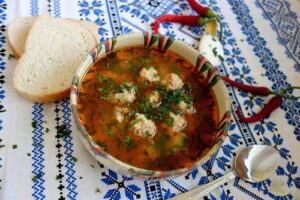 Experience the vibrant flavors of Romanian cuisine with this traditional dish, Ciorba de Perisoare, or Romanian Meatball Sour Soup. Bursting with savory meatballs, hearty vegetables, and a tangy sour broth, this soup is a beloved comfort food in Romanian households. Each spoonful offers a symphony of tastes and textures, blending tender meatballs with the bright acidity of sour soup base, enriched with the earthy notes of vegetables and herbs.
Experience the vibrant flavors of Romanian cuisine with this traditional dish, Ciorba de Perisoare, or Romanian Meatball Sour Soup. Bursting with savory meatballs, hearty vegetables, and a tangy sour broth, this soup is a beloved comfort food in Romanian households. Each spoonful offers a symphony of tastes and textures, blending tender meatballs with the bright acidity of sour soup base, enriched with the earthy notes of vegetables and herbs.
Contraindications to the consumption of lovage
Allergic Reactions: Individuals with allergies to plants in the Apiaceae family, such as celery, carrots, and parsley, may also experience allergic reactions to lovage. Symptoms may include skin rashes, itching, swelling, or difficulty breathing. It’s important for those with known allergies to exercise caution when consuming lovage.
Pregnancy and Breastfeeding: There is limited information available regarding the safety of lovage consumption during pregnancy and breastfeeding. It is advisable for pregnant and breastfeeding women to consult with a healthcare professional before incorporating lovage into their diet to ensure its safety for both the mother and the baby.
Kidney Disorders: Lovage possesses diuretic properties, which means it may increase urine production and promote the elimination of fluids and electrolytes from the body. Individuals with kidney disorders or those taking medications that affect kidney function should exercise caution when consuming lovage to avoid potential complications.
Blood Clotting Disorders: Lovage contains compounds that may have anticoagulant properties, which could potentially interfere with blood clotting. Individuals with bleeding disorders or those taking anticoagulant medications (e.g., warfarin) should consult with a healthcare provider before consuming lovage to prevent any adverse effects on blood clotting.
Gastrointestinal Disorders: Some individuals may experience gastrointestinal discomfort, such as stomach upset, gas, or bloating, upon consuming lovage. Those with sensitive stomachs or pre-existing gastrointestinal conditions should monitor their symptoms closely and consider limiting or avoiding lovage consumption if it exacerbates their symptoms.
As with any dietary supplement or herbal remedy, it is essential to consume lovage in moderation and be mindful of any potential interactions with medications or pre-existing health conditions. Consulting with a healthcare professional before adding lovage to your diet can help ensure its safety and suitability for your individual health needs.
Fascinating Facts About Lovage
- Ancient Roots:
Lovage boasts a rich history dating back to ancient times. It was revered by civilizations such as the Greeks and Romans for its medicinal properties and was often used to treat various ailments, including digestive issues and respiratory problems. The ancient physician Galen even recommended lovage as a remedy for indigestion and arthritis.
- Folklore and Folk Medicine:
Throughout history, lovage has been steeped in folklore and superstition. In some cultures, it was believed that carrying lovage could protect against evil spirits or bring good luck. Moreover, lovage featured prominently in traditional folk medicine practices, with remedies ranging from poultices for wounds to infusions for headaches.
- Lovage as a Love Potion:
In medieval times, lovage was believed to possess aphrodisiac properties and was often used in love potions and charms. It was thought that consuming lovage could enhance romantic feelings and spark passion between couples.
- Herbal Hair Rinse:
Lovage has been historically used as a natural hair rinse to promote hair health and shine. Infusions made from lovage leaves were applied to the hair to cleanse the scalp, strengthen hair follicles, and add luster to locks.
- Insect Repellent:
The strong aroma of lovage is known to repel certain insects, making it a natural insect repellent. In gardens, lovage plants can help deter pests such as aphids, whiteflies, and cabbage moths, thus protecting nearby crops from damage.
- Ritualistic Herb:
Lovage has been incorporated into various rituals and ceremonies throughout history. In some cultures, it was believed that burning lovage leaves could ward off evil spirits or purify sacred spaces, adding a mystical dimension to its uses.
- Herbal Dye:
Lovage has been used as a natural dye to impart color to fabrics and textiles. The roots of lovage contain compounds that can produce shades ranging from pale yellow to dark brown, offering an eco-friendly alternative to synthetic dyes.
- Symbol of Victory:
In ancient Rome, lovage was associated with victory and triumph. It was customary for victorious generals to be crowned with laurel wreaths containing lovage leaves as a symbol of their achievements and valor on the battlefield.
- Divination Herb:
Lovage has been used in divination practices to gain insight into the future or uncover hidden truths. In some cultures, lovage leaves were scattered on the ground, and the patterns formed were interpreted as omens or messages from the spiritual realm.
- Herbal Amulet:
Lovage roots were sometimes worn as protective amulets or talismans to ward off negative energy or evil influences. It was believed that carrying a piece of lovage root could bring good fortune and safeguard against misfortune.
- Herb of the Stars:
In astrology, lovage is associated with the planet Jupiter and the zodiac sign Sagittarius. It is believed that incorporating lovage into rituals or spells during Jupiter’s influence can amplify abundance, growth, and luck.
- Lovage in Perfumery:
The aromatic properties of lovage have inspired perfumers to incorporate its essence into fragrances. Lovage’s unique scent, with hints of celery, parsley, and anise, adds a distinctive note to perfumes and colognes, offering a fresh and herbaceous aroma.
- Lovage in Cosmetics:
Lovage extracts and essential oils are occasionally used in cosmetics and skincare products for their skin-soothing and rejuvenating properties. Lovage-infused creams, lotions, and serums may help hydrate the skin, reduce inflammation, and promote a healthy complexion.
- Lovage as a Natural Preservative:
Historically, lovage was used as a natural preservative for food and beverages due to its antimicrobial properties. Adding lovage leaves or seeds to stored food items helped inhibit the growth of harmful bacteria and extend their shelf life.
- Lovage in Witchcraft:
In some folkloric traditions, lovage was regarded as a magical herb with protective and divinatory powers. It was used in spells, potions, and rituals aimed at enhancing intuition, warding off evil spirits, and harnessing the energies of the natural world.
- Lovage Symbolism:
Lovage has been imbued with symbolic meaning in various cultures and belief systems. In medieval Europe, lovage was associated with strength, courage, and resilience, often seen as a symbol of protection and fortitude in times of adversity.
- Lovage in Brewing:
Lovage has been used in traditional brewing practices to impart flavor and aroma to alcoholic beverages such as beer and ale. Lovage-infused brews offer a unique twist on classic recipes, adding herbal and spicy notes to the final product.
To explore more plants, please visit our page about plants
Reference
Gilani, A. H., Aziz, N., & Khan, M. A. (2002). Antispasmodic effects of rosmarinic acid from Levisticum officinale on isolated tissues. Journal of Ethnopharmacology, 71(3), 281-287.
Mihajilov-Krstev, T., Jovanović, B. R., Kitić, D., Milovanović, D., Mladenović, M., & Stefanović, O. (2017). Chemical composition, antimicrobial, and cytotoxic properties of Levisticum officinale W.D.J. Koch (Apiaceae) essential oil. Pharmaceutical Biology, 55(1), 1561-1567.
Ozkan, G., Sagdiç, O., & Baydar, N. G. (2004). Kurkuminoids and volatile content of fresh and dry Levisticum officinale W.D.J. Koch. Journal of Agricultural and Food Chemistry, 52(9), 2749-2752.
Blumenthal, M., Busse, W. R., Goldberg, A., Gruenwald, J., Hall, T., & Riggins, C. W. (Eds.). (1998). The Complete German Commission E Monographs: Therapeutic Guide to Herbal Medicines. Austin: American Botanical Council.
Duke, J. A., & Ayensu, E. S. (1985). Medicinal Plants of China (Vol. 1). Reference Publications.
Khare, C. P. (2007). Indian Medicinal Plants: An Illustrated Dictionary. Springer Science & Business Media.
Sharififar, F., Mirtajadini, M., & Azampour, M. J. (2007). In Vitro Antioxidant Activity of Some Commonly Used Iranian Herbs. Journal of Acupuncture and Meridian Studies, 1(2), 96-103.
Van Wyk, B. E., & Wink, M. (2015). Medicinal Plants of the World: An Illustrated Scientific Guide to Important Medicinal Plants and Their Uses. Timber Press.
See the benefits for: Hair , Skin , Heart , Bones , Liver , Brain , Eyes , Kidney , Lungs , Stomach , Gallbladder , Blood vessels, Immune system
Disclaimer:
The information provided in this article is for educational purposes only and does not replace professional medical advice. Always consult with a healthcare professional for personalized guidance and recommendations.

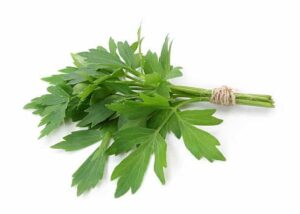 Digestive Health
Digestive Health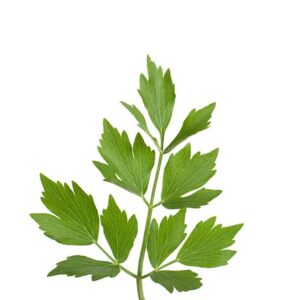 Anti-inflammatory and Antioxidant Properties
Anti-inflammatory and Antioxidant Properties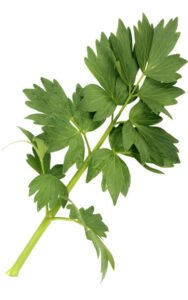 Potential Antimicrobial Activity
Potential Antimicrobial Activity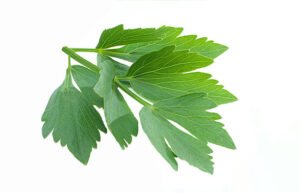 Bone Health
Bone Health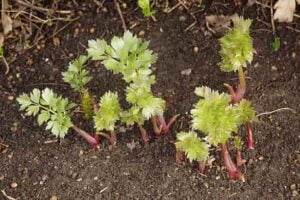 Diuretic Properties
Diuretic Properties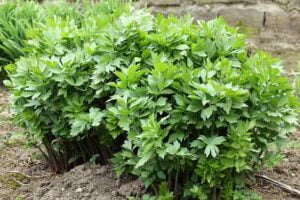 Respiratory Health
Respiratory Health